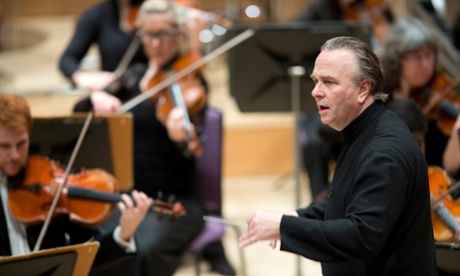
Of all the artistic tributes marking the centenary of the first world war, few have been as remarkable in concept and execution as this Hallé concert: not least because it enabled Mark Elder to realise a long-held ambition to perform Arnold Bax’s extraordinarily obscure tribute to the leaders of the 1916 Easter Rising, In Memoriam.
This was, Elder stated in a brief introduction from the platform, “only the third or fourth time” the work has been presented in public, though it contains a depth of emotion that feels almost too personal to reveal. Bax was deeply affected by the execution of the poet-philosopher Patrick Pearse, and his musical response was an unsettled work in which outbursts of anger are assuaged by a long, meandering melody of profound sadness and lyricism.
Elgar’s choral elegy The Spirit of England has also suffered neglect, perhaps due to its conspicuous lack of pomp and circumstance. The composer himself was riven with doubt about setting Laurence Binyon’s lines demonising the German foe, and the Hallé choir’s ear-splitting delivery sounded as if the composer were summoning a last choral shout before retreating into the introspective chamber works of his final years.
A beatific performance of George Butterworth’s orchestral rhapsody, A Shropshire Lad, confirmed that the composer’s death at the Somme was as great a loss to music as Wilfred Owen’s to poetry or Henri Gaudier-Brzeska’s to sculpture. And though one tends to associate the nature-worship of Sibelius’s fifth symphony with encircling swans rather than the carnage of the front, the piece was revised repeatedly throughout the war, becoming progressively darker with every draft. In the context of this programme, the strangely broken bassoon melody in the first movement sounded as desolate as anything Sibelius ever wrote.

